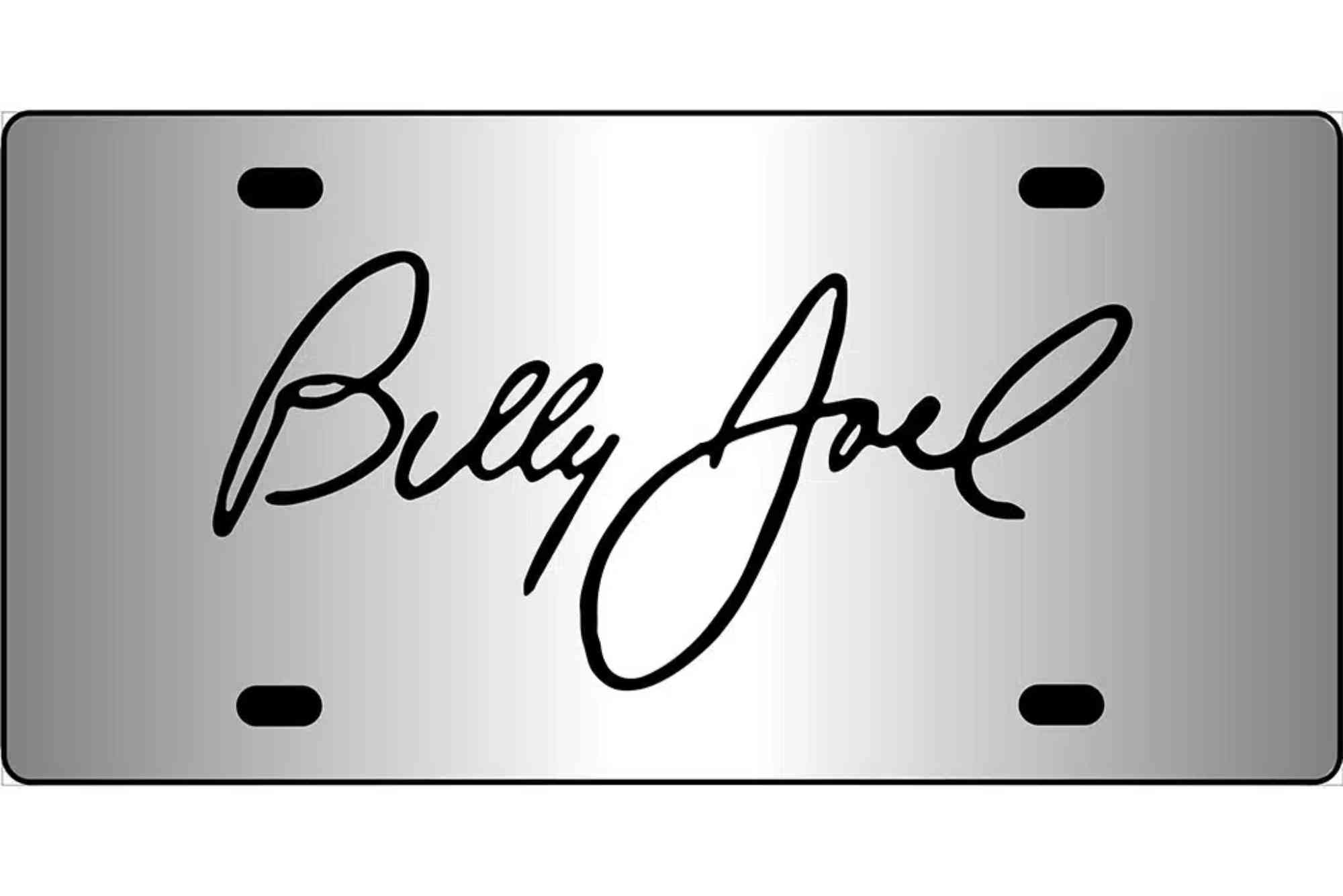Introduction
Car customization is a popular way for vehicle owners to express their personality. From tinted windows to aftermarket exhausts, there’s no shortage of ways to make a car stand out. Among these modifications, custom mirror license plates have gained attention for their flashy, reflective look. But an important question arises—are custom mirror license plates legal? In this article, we’ll explore the legality, risks, and regulations associated with these eye-catching plates.
Understanding Custom Mirror License Plates
A custom mirror license plate refers to a number plate with a highly reflective or mirrored surface. These are different from standard reflective plates required by law for visibility. Instead, mirror plates often have a chrome or glass-like finish, designed for aesthetic appeal. They can be custom-cut, colored, or include stylized fonts. But before putting them on your vehicle, it’s important to understand how they fit into state and federal law.
The Legality of Custom Mirror License Plates in the U.S.
The legality of custom mirror license plates largely depends on the jurisdiction. In the United States, license plate laws are regulated at the state level. Each Department of Motor Vehicles (DMV) sets specific rules about plate materials, visibility, color, and reflectivity.
Most states require that license plates be:
- Clearly visible from a specified distance (often 50 to 100 feet)
- Readable by law enforcement and automated systems
- Made from approved materials such as aluminum with specific reflective coatings
Mirror plates, by their nature, often violate one or more of these requirements. Their high reflectivity can make them difficult to read in bright sunlight or at night when headlights shine on them. Some may interfere with license plate readers (LPRs), which are used by police and toll systems.
Because of these issues, mirror-finish or chrome license plates are illegal in many states. Law enforcement generally views them as an attempt to obstruct identification, which can lead to fines or even legal consequences.
States with Strict License Plate Rules
Certain states are more vigilant than others about enforcing license plate laws. For example, California Vehicle Code 5201 clearly states that plates must be “securely fastened” and “clearly visible.” It prohibits altering the plate in a way that impairs its legibility. Florida and New York have similar rules, disallowing reflective or distorted plates. In Texas, vehicle code regulations require that plates be visible from 100 feet during daylight and not obscured in any way—including excessive reflectivity.
Violations can result in citations, with fines ranging from $50 to $200 depending on the state. In some cases, repeated offenses can even lead to vehicle registration suspension.
Why People Use Custom Mirror License Plates
Despite legal risks, people are drawn to custom mirror license plates for several reasons. They give a sleek, futuristic look to the car, especially when matched with chrome or black vehicle trims. Auto enthusiasts may use them for car shows, photo shoots, or off-road displays where legality is less of a concern.
Others may not be aware that the plates are illegal. Many online retailers sell them without disclaimers, leading customers to believe they’re acceptable for road use. Some states also allow for front plate customization if only a rear plate is legally required—but this varies and often causes confusion.
What Makes a License Plate Illegal?
It’s helpful to understand what specific characteristics make a plate illegal in most jurisdictions. Plates may be considered non-compliant if they:
- Are made from mirror or chrome-like materials that distort readability
- Use non-standard fonts or letter spacing
- Are covered by tinted, smoked, or reflective frames
- Lack the appropriate reflective coating mandated by law
- Obstruct visibility due to glare or poor contrast
Even temporary mirror-like license plate covers can be problematic. Many states also ban the use of plate protectors that create a reflective or holographic effect, as they can interfere with law enforcement’s ability to identify the vehicle.
Legal Alternatives to Mirror Plates
For those who love the aesthetic of mirror license plates but want to stay compliant, there are safer alternatives. Some states allow custom plates with specialty designs as long as they are ordered through the DMV or state-approved vendors. These plates may offer metallic or sleek backgrounds while still meeting visibility standards.
Another option is using chrome-finished license plate frames instead of changing the plate itself. This gives a similar visual effect without violating laws. Some companies even offer vinyl wraps for plates, but again, these must not interfere with legibility or reflectivity.
Always check with your state DMV before purchasing any non-standard plate.
Potential Consequences of Using Illegal Plates
The most common penalty for using a custom mirror license plate is a fix-it ticket. Law enforcement may issue a citation requiring the plate to be replaced with a compliant version. If not resolved in time, it can result in additional fines or registration issues.
In more serious situations, police may assume the plate is intentionally designed to evade identification. This can elevate the offense to a misdemeanor or result in towing. Vehicles with unreadable plates may also be flagged by toll cameras, leading to unpaid toll notices or fines.
For drivers who frequently travel between states, a plate that is legal in one place may not be in another. This can create legal problems when crossing state lines, especially if you’re pulled over or pass through a toll plaza.
Custom Mirror License Plates and Automated Systems
Modern law enforcement relies heavily on technology such as license plate readers (LPRs). These systems use high-speed cameras to capture and read plate numbers automatically. Mirror plates can reflect light in a way that causes glare or distortion, preventing the cameras from reading them.
This is one of the main reasons such plates are banned or discouraged. Authorities argue that if a plate cannot be read by machines, it obstructs law enforcement, toll collection, and even amber alerts.
Even if not intended for concealment, using a mirrored plate can look suspicious and invite scrutiny. It’s simply not worth the hassle if your plate interferes with automated systems or raises red flags.
Expert Opinion on Vehicle Customization
Auto industry experts and legal professionals generally advise against the use of mirror license plates on public roads. Customizing a car is a great way to express individuality, but not at the expense of legality or safety.
Professionals recommend using approved customization options, such as official DMV specialty plates or decorative plate frames that stay within the law. These alternatives maintain both style and compliance, ensuring you avoid unnecessary attention or penalties.
Think Before You Shine
In conclusion, custom mirror license plates are generally not legal for on-road use in most U.S. states. While they may look stylish and attract attention, the risk of fines, legal trouble, and safety concerns outweigh the benefits. Law enforcement and automated systems rely on plate visibility, and any modification that obstructs that function is likely to be banned.
If you love the mirror look, explore legal ways to achieve it—like chrome frames or DMV-issued specialty plates. Always check your state laws before installing any non-standard accessory on your car.
(FAQs)
Are mirrored license plates legal in any state?
No state explicitly allows mirrored license plates for regular road use. Most consider them non-compliant due to readability issues and safety risks. Even if not illegal on their face, their characteristics often violate laws about visibility and reflectivity.
Can I use a custom mirror plate on the front of my car only?
In some states, if front plates are not required by law, you may display a decorative mirror plate. However, this depends on local regulations. Always verify with your state DMV before using any custom plate, even on the front.
Why are mirror plates illegal?
Mirror plates can reflect light in a way that makes them unreadable, especially at night or in sunlight. This makes them dangerous in emergency situations and incompatible with automated plate readers used by law enforcement and toll booths.
Can I be fined for using a mirror plate?
Yes. Using an illegal plate can result in fines, fix-it tickets, or even vehicle impoundment in extreme cases. Repeated violations may also affect your vehicle registration status.
What are safe alternatives to mirror plates?
Instead of mirrored plates, you can opt for decorative frames, DMV-approved specialty plates, or subtle modifications that comply with legal standards. These provide style without legal risks.





